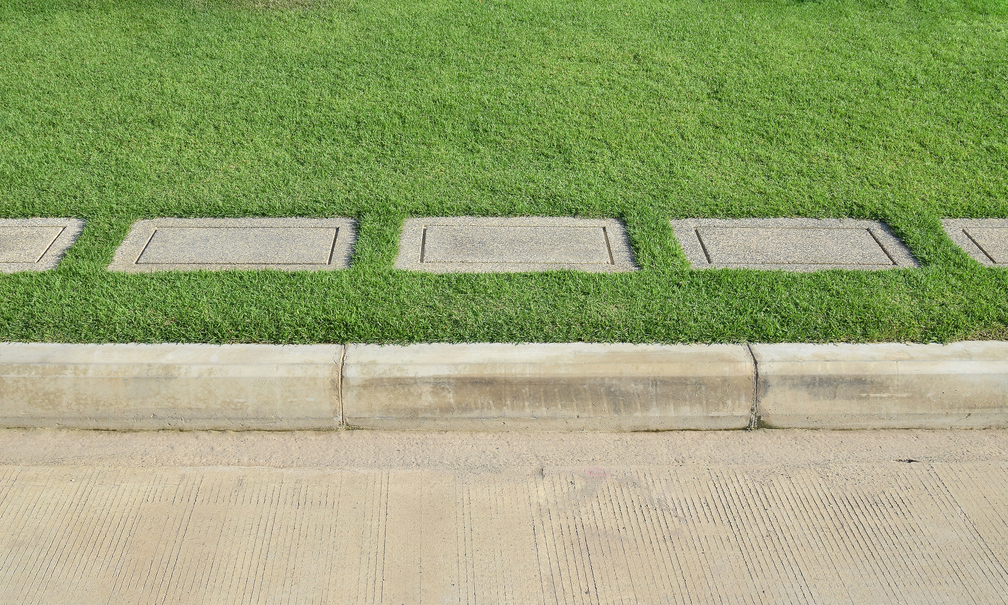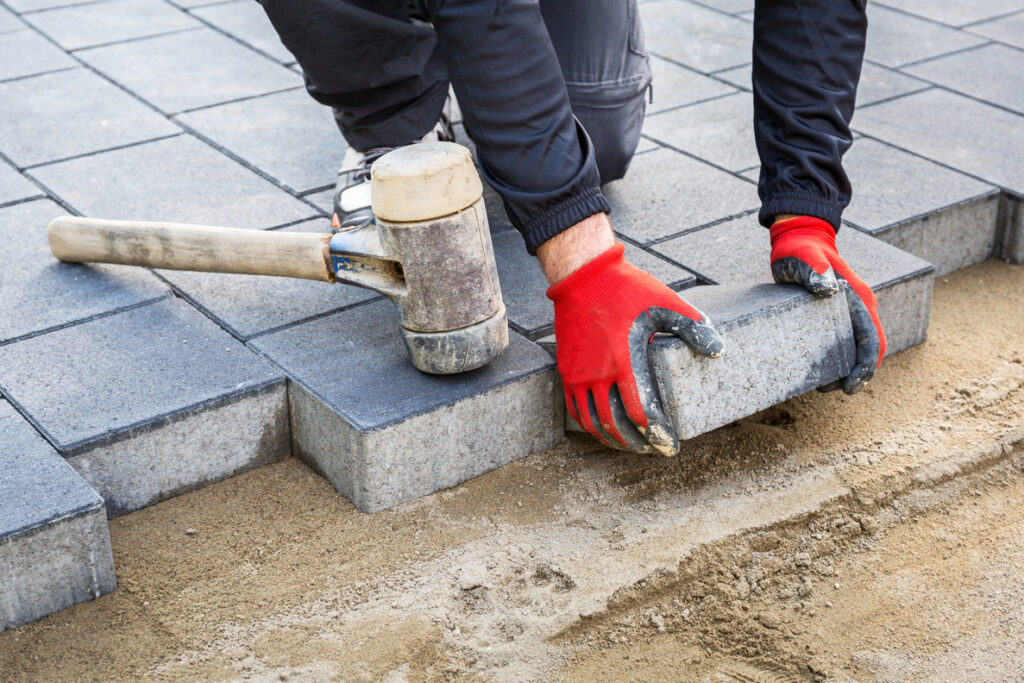Are you considering replacing or adding a driveway, walkway, or patio to your outdoor space? You’ll have to wade through the various paving materials available, knowing that all the options have pros and cons.
Pavers and concrete are the most common options for many property owners. They have a lot of similarities, especially in terms of durability and ease of access. Still, it’s hard to know which one to choose between them at first glance.
In this pavers vs. concrete post, we’ll cover cost differences, aesthetic appeal, and more to help you make an informed decision.
Concrete vs. Pavers: Factors To Consider While Differentiating Both
Some of the key talking points to consider before deciding between pavers and concrete for your new driveway, walkway, or patio include the following.
Appearance
Pavers are undoubtedly more visually appealing than concrete slabs. They come in different shapes, patterns, textures, and colors. So, it’s easier to find pavers that match your home’s general aesthetic.
On the other hand, concrete has a flatter look. Many people end up exploring ways to improve the concrete’s appearance. Options include staining or embedding the concrete with decorative stones.
Some people also try to replicate the look of pavers on concrete by choosing stamped concrete. However, if you love the look of pavers, it’s probably best to stick with the authentic thing instead of a simulated option.

Durability
While considering pavers vs. concrete, you’ll want to choose the option that will stand the test of time. Which one will hold up longer in the face of regular foot or vehicular traffic and extreme weather conditions? The reality is that both options are highly durable, but to varying degrees.
Concrete can last a long time. However, it is highly prone to cracking in cold weather. Concrete slabs will expand and contract as moisture and temperature changes take their toll on the surface.
One possible reason is that concrete has a lower ASTM specification than pavers. ASTM is the American Society for Testing and Materials. According to the specifications, poured concrete has a compressive strength of around 2,500-3,000 PSI. On the other hand, pavers have a compressive strength of around 8,000 PSI. Concrete has more room to absorb water, while pavers will generally displace it.
Overall, pavers are less likely to crack because the natural density of the material won’t allow water to enter the stone. As a result, expansion and contraction have little to no impact on pavers. The joints and natural interlock between pavers ensure enough room for the little expansion and contraction that pavers undergo without cracking.
Cost
The cost of pavers vs. concrete is one of the biggest talking points in this debate. Overall, the installation cost of installing pavers can be up to 15% more expensive than the cost of installing concrete. The bulk of the extra cost comes from the fact that pavers installation is more labor- and time-intensive than pouring concrete.
If you want to spend the least amount possible on your project, choose concrete for its lower upfront or installation costs. However, looking at the durability of both materials, you should factor in the cost of maintenance over the lifespan of the concrete surface. In some cases, the cost of repairing cracks over the years may erode any savings you made by choosing concrete.

Installation
The pavers installation process is generally more demanding. The installation crew will lay each paver down individually, following a pattern, before securing it with mortar or interlocking edges.
Since installers have to work on the pavers individually, the installation process generally takes longer than concrete.
Contactors install concrete by pouring it on the work site or installing prefabricated slabs. Either way, the installation process is straightforward and takes less time than installing pavers. However, extra finishes or a sharply graded surface might increase the project timeline.
Read More about Paver Planning
Maintenance
Pavers generally require little care. The installation process and the materials generally limit weed growth. However, some moss, weeds, and grass will grow between the joints from time to time. So, you may need to manually remove the few weeds that might appear or treat the area using a weed killer. You can keep the pavers looking great by paying for a professional cleaning and sealing service.
Manufacturers design the base of each stone to flex with ground movement, but settling can still occur. In that scenario, you can call in a contractor to lift the stone, recompact the base, and apply a new layer of sand bedding before setting the stones back into position.
Maintenance for the typical concrete slab is a lot more complicated. Fixing cracks, in most cases, involves pouring a completely new slab. Upon completion of the repair, the refinished area will look different from the rest of the surface as the color of aged concrete is hard to match.
Related Article: Are Pavers Good Around a Pool?
Frequently Asked Questions (FAQs) — Pavers vs. Concrete
Why Choose Pavers Over Concrete?
You should choose pavers over concrete because of their higher durability and flexibility. Pavers also look better than concrete. They come in various colors, shapes, and textures. It’s also easier and cheaper to maintain and repair pavers. So, pavers will win in most cases, whether you’re considering a concrete driveway vs. pavers or concrete vs. paver patio.
Why Do Pavers Fail?
Pavers fail for diverse reasons, including poor installation work, manufacturer defects in the stones, prolonged exposure to extreme weather conditions, and excessive weight.
Why Hire a Pro To Install Pavers?
One of the clearest talking points in the concrete slab vs. pavers debate is that pavers have a more demanding installation process. A professional installer has the experience to install your pavers while adhering to best practices. They will ensure proper leveling, tight joints, and pattern uniformity. The result is an appealing surface that will have a longer lifespan. Additionally, a professional installer will finish the project on schedule.
Conclusion
Looking at the pavers vs. concrete conversation thus far, it’s obvious that pavers come out on top overall.Discover more about the concrete vs. pavers cost, installation process, and more. Call the Sta-Built Construction team in Olympia, WA, at (360) 837-6170 to schedule a consultation.
Read More: Paver Installers Near Me

